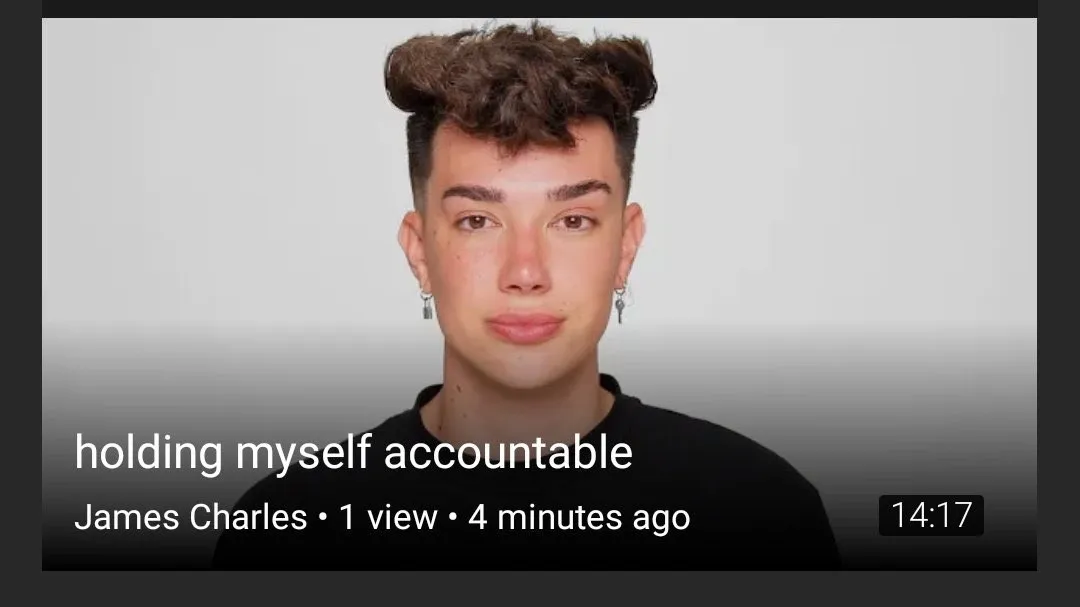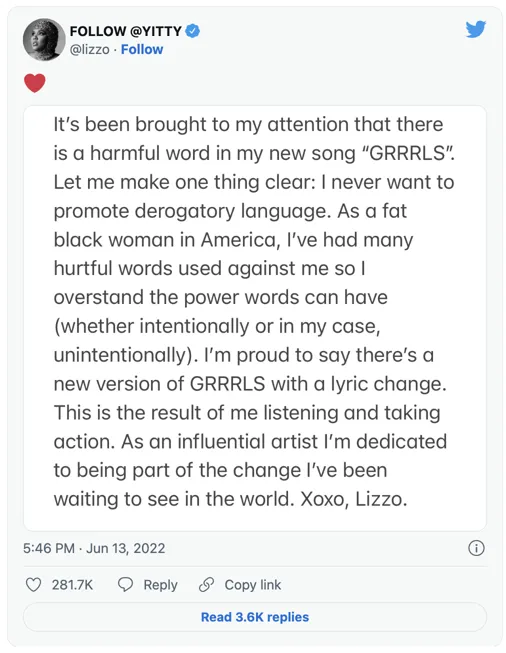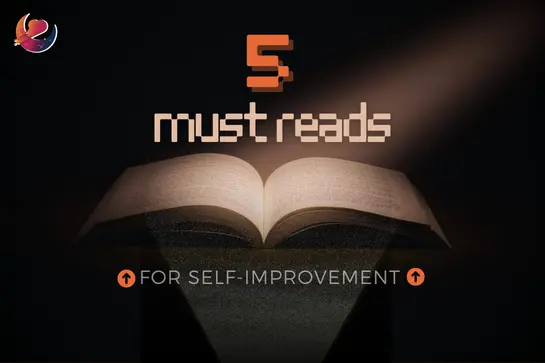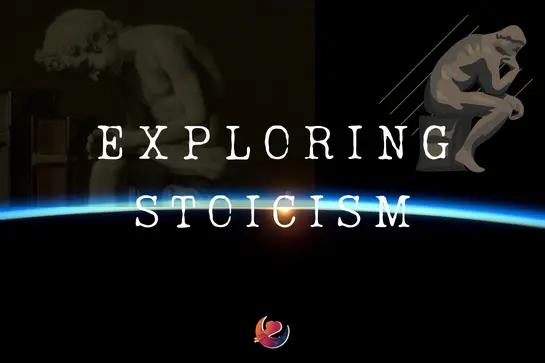By Riley Kim | 25th October, 2022
Apologies are the hardest part of relationships with people. It takes so many little steps to build trust with someone, but just a petty little event to throw it all.
Social Media Apologies?
Apologizing on social media is hard. This lesson has been learned the hard way repeatedly by young influencers, and old icons alike (James Charles, Trisha Paytas, and Morgan Wallen, to name a few).
We all know the feeling as media consumers: scrolling through Instagram and reading something infuriating, feeling the spur-the-moment urge to start a war against an influencer in the comments section.
As an influencer, I'm sure it feels daunting to try to appease the anger of fans and haters alike with one simple video apology. The talent to make these apologies feel genuine is rare, which is partially why social media apologies have such a bad reputation.
Why Do People Disregard Social Media Apologies?
One famous example of a failed, ineffective, controversial social media apology was made by James Charles (Youtuber and make-up artist). Addressing accusations that he had sent inappropriate messages to underage boys, Charles took to Youtube with a video entitled 'Holding Myself Accountable' in April 2021.

Despite the video's title, it - along with countless other social media apologies - lacked sincerity, accountability, and resolution.
Social media apologies are simply not effective. Apologies - when done correctly - should acknowledge wrongdoing, claim responsibility, and work to mend the damage done.
In theory, social media provides an ideal platform to spread such messages to a large audience effectively. In reality, however, it allows celebrities and influencers to save face while avoiding their mistakes altogether.
First and foremost, most apology videos lack authenticity. From tears to out-of-character language, some don't even attempt to hide that a PR team wrote and directed the entire script. This inauthenticity is disrespectful and reveals a lack of regard for the wronged party. It is one thing to make a mistake; it is another to ignore those you hurt and refuse to work toward understanding.
And while many claims to take responsibility, such as James Charles' 'Holding Myself Accountable,' their blatant grasp for sympathy beg to be acknowledged as the victim rather than the wrongdoer. This presents a larger problem. When people focus on handling the negative attention, they fail to understand the implications and consequences of their actions. Without an understanding of their mistakes, they cannot do better in the future.
Apologies mean nothing without a behavior change. No number of click-bait crying videos can protect the kids Charles harassed. Until people worry more about bettering themselves and less about their Instagram follower count, we cannot progress from our mistakes. Instead of hiding behind a screen and the guise of a quick fix, we need to abandon social media as the primary method for apologizing and confronting our actions.
How To Construct Effective/Acceptable Social Media Apologies?
Although most people think of social media apologies as stunts by influencers to maintain their reputation and status, not all social media apologies are fake and ineffective. If an apology video meets certain criteria, it can be used as a force for good for both influencer and consumer and can serve as a great lesson-learning tool.
The most important aspect of this statement must have is sincerity. If an influencer is genuinely sorry for something they've done, this truth will be seen, even through the phone screen. Without sincerity, all hopes for growth from the apology are flushed down the drain.
Apologies also should be brief. Beating around the bush makes the sincerity factor go down immensely. If an influencer briefly states what they did wrong and why they are sorry, the consumer in me knows they at least understand in a nutshell where they went wrong.
Lastly, truly effective social media apologies should include how the influencer plans to grow and change from their mistake. Will they take classes on a topic they addressed disrespectfully? How will they work toward personally fixing this mistake?
An apology that entails these three elements can be effective and leave a lasting impact on everyone involved. mistakes and subsequent apologies are an important part of life.
Something about your favorite influence doing something upsetting but owning up to their wrong is honestly comforting. It's something I do not believe should be taken away from anyone despite the complications of technological barriers.
Lizzo: an Example of a Great Social Media Apology
Grammy award-winning artist, Lizzo received a swarm of backlash online after the drop of her single, "Grrrls", which many fans said included an ableist slur. Lizzo and her team acted fast, re-recorded the single and released a statement on social media.






Forgot password?
Close message
Subscribe to this blog post's comments through...
Subscribe via email
SubscribeComments
Post a new comment
Comment as a Guest, or login:
Connected as (Logout)
Not displayed publicly.
Comments by IntenseDebate
Reply as a Guest, or login:
Connected as (Logout)
Not displayed publicly.